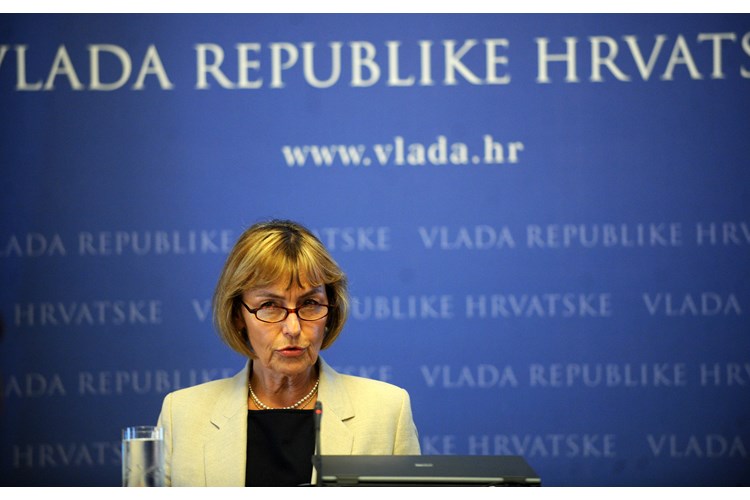


"Salopek was kidnapped on 20 July and eight days later ransom was demanded," Pusic said.
She said that the demand was made only once, was sent to the French company for which Salopek worked and was later not mentioned again.
There was no contact after that until 5 August when Islamic State released his photo, she said. "Then it was demanded that detained Muslim women be freed," she said, adding that the fact that the demand was not specific was an ominous warning.
The kidnappers made no contact for negotiations, she said.
What was problematic about the demand is the fact that practically 99% of women in Egyptian prisons are Muslims and the demand about their release contained no specifics whatsoever such as membership of a specific organisation or concrete names, Pusic said.
Based on this, experts concluded that "one group abducted him and another released the video," Pusic said.
The first group were simply bandits who kidnapped him and demanded ransom, but the demands changed when he ended up in the hands of Islamic State, said Pusic.
She stressed that Croatia still had no confirmation that Salopek had been executed and that the search for him continued with the same intensity as before as well as that the best possible experts, using the best technology, were working to establish the facts.
"We are working with the same intensity as until now, as are all the other services in Egypt. We are cooperating with all larger countries in the EU and the rest of the world that have offered us assistance," said Pusic.
Croatia will continue to search for Salopek as long as there is any chance that he could be alive, she said, adding however that it was not sure that it would ever be possible to confirm that Salopek was dead.
"We feel deeply with his family, who under these unimaginably difficult circumstances have kept composure and are fighting for any possibility that he might be found and rescued, and they should serve as an example to us all," said Pusic, who immediately after the video with Salopek was released travelled to Cairo and joined in efforts to rescue him.
She thanked Egyptian authorities for their assistance as well as French President Francois Hollande and the Islamic community in Croatia, for efforts to help through religious authorities in Egypt.
The coalition against the Islamic State terrorist organisation is more important now than ever, Pusic said.
"This type of terrorism is a global threat and does not spare anyone... It is not true that you will not fall victim to terrorism if you do not fight against it," Pusic said.
Croatia cannot lead that fight, but it will not hide under the table either and hope that it will hit someone else, she stressed.
"The more you hide, the more at risk you are. This is a moment when all of Croatia should unite to decisively counter the evil and crime of terrorism, and to support the Salopek family," she concluded.
The foreign minister said she did not believe the motive for Salopek's abduction and killing - Croatia's participation in the coalition against Islamic State - was true.
Asked if the Egyptian authorities had been willing to negotiate with the kidnappers, she said that according to what she knew, they had not, but that she could not speak about that.
"... however, during the talks with the Egyptian foreign minister, a problem was underlined - the nonspecific demand by the kidnappers who then made no contact for any possible negotiations," she said.
Pusic said that she had spoken with Croatian nationals working in Egypt about the possibility of stepping up security and having the army protect them in some parts of the country where that had not been the case so far.
She dismissed the possibility of hiring Croatian companies to provide security for Croatian workers in Egypt due to the very complex security situation in that country.
Asked about recommendations to Croatian nationals regarding travel to Egypt, she said that Croatian authorities could provide all relevant information but would certainly not impose any bans. She estimated that around 80 Croatian citizens were visiting Egypt or worked there.
Tomislav Salopek was abducted on a road some 20 kilometres southwest of Cairo. Last Wednesday, the Egyptian affiliate of Islamic State threatened to kill him in 48 hours if Muslim women held in Egyptian prisons were not freed.
Yesterday, August 12, Islamic State said that it had killed Salopek by cutting his head off and posted a photo on Twitter claiming it showed his decapitated body. On Thursday, it released an audio recording confirming the execution.
Neither the Croatian nor the Egyptian authorities have confirmed Salopek's death.
(Hina) sp/rml